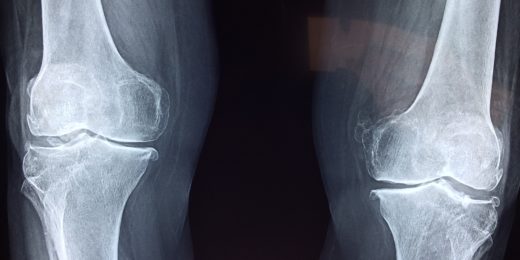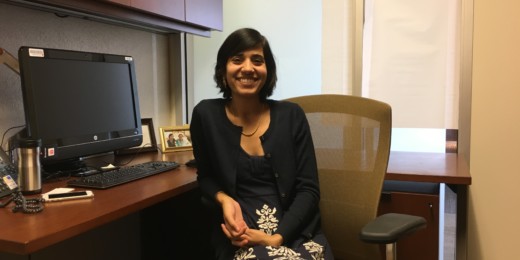Scientists at Stanford have developed a tool that helps them track "off-target" gene edits that come as an accidental result of gene editing.
Month: February 2019
Congenital heart defects boost the risk of adult heart disease — by a lot
Someone born with a relatively simple heart problem, even when it's fixed by surgery, is 13 times as likely to later develop heart failure.
A skeptical look at popular diets: Hurrah for raw food?
In the sixth post in A Skeptical Look At Popular Diets, Stanford physician Randall Stafford analyzes the pros and cons of a raw food diet.
To learn secrets of lab-grown “gutballs,” scientists turn them inside out
Intestinal tissue can be cultured in the form of little hollow "gutballs." To make them more useful, scientists figured out how to turn them inside out.
Inheritance: On family secrets, genetics and ethics
With a DNA test, Dani Shapiro discovered that the man she had thought was her father was not. She discussed the finding, and her writing, on campus.
Once uninsured, a medical student — and her peers and mentors — are giving back
In this Stanford Medicine Unplugged post, medical student Yoo Jung Kim reflects on how being uninsured has inspired her to provide care for others.
Turning up technology to reduce health risks
A Stanford clinic found that staying in close contact with patients virtually between appointments achieved dramatic health improvements. Can additional technology build on those gains?
Mom’s voice is big deal for most kids; less so for those with autism
In most babies and kids, the sound of their mother's voice gets special treatment in the brain. But in autism, this distinctive brain response is lessened.
AI will not solve health care challenges now, but there are innovative alternatives, researcher writes
Artificial intelligence holds promise for transforming primary care in the future, but some medical practices are demonstrating how to innovate now.
Preventing osteoarthritis, an orthopaedic surgeon’s goal
Orthopaedic surgeon Constance Chu has spent her career seeking ways to prevent osteoarthritis from developing after a knee injury.
Avoiding invasive treatment in dying patients may not shorten lifespan
Withdrawing or withholding invasive medical treatments to keep very ill patients in the ICU comfortable and communicative may not hasten their death.
Doctors are becoming happier with their work life
Physicians are more satisfied in their jobs, a Stanford survey finds, but they're less happy than workers in other fields.
Opioid epidemic makes eastern inroads and targets African-Americans
A new study has found that opioid-related deaths are highest on the East Coast and opioids are affecting an increasing number of African-Americans.
A just-right fix for a tiny heart
A baby born with a rare heart complication is now thriving following two surgeries at Lucile Packard Children's Hospital Stanford.
From surgery to psychiatry: A medical student reevaluates his motivations
After a clerkship in surgery, fourth-year medical student Jon Sole was forced to reevaluate his desire to become a surgeon. What he found surprised him.
In the Spotlight: “The world is your oyster in geriatrics”
In this In the Spotlight Q&A, Meera Sheffrin discusses her work as a Stanford geriatrician and offers insight into aging and health.
















